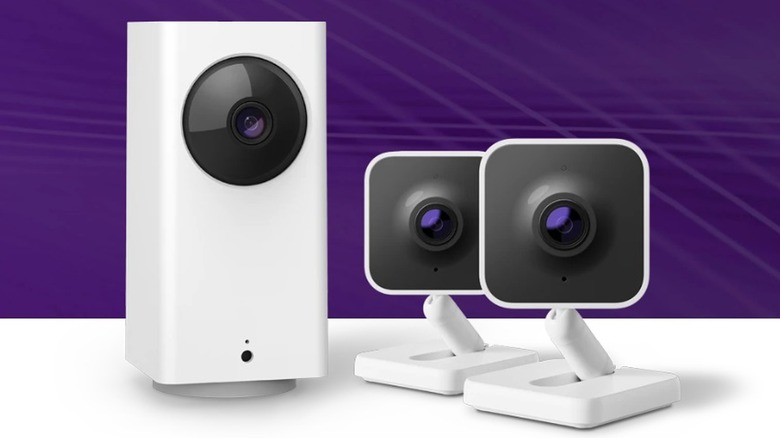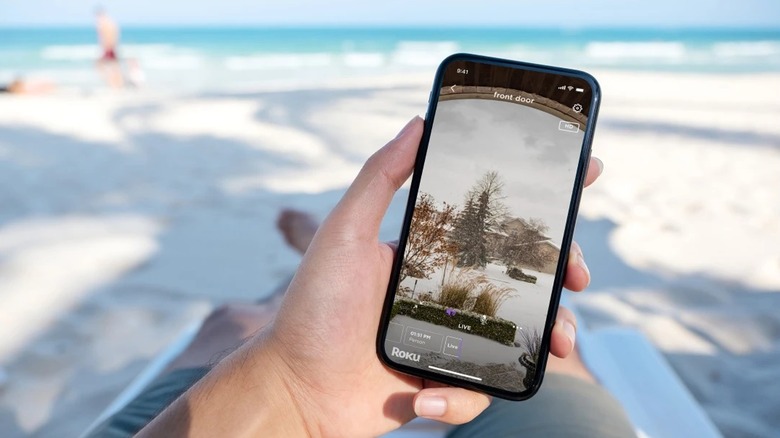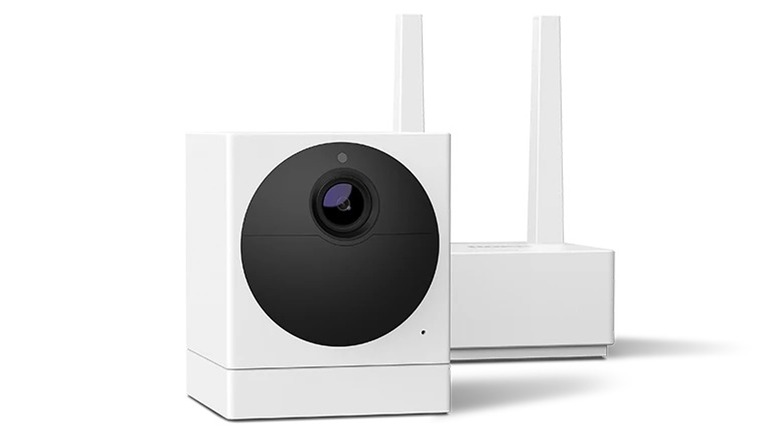3 Things To Know Before Buying Roku Cameras For Your Home
We may receive a commission on purchases made from links.
A smart home is all about making daily life easier with a variety of connected devices able to communicate and be controlled remotely. This concept is also known as IoT (The Internet of Things), which transforms household items into network connected devices which can gather and disseminate data. According to Statista.com, the number of smart homes is expected to overtake 400 million in 2024. One of the ways people are taking advantage of smart home technology is through security systems which have become easier to install, configure, and manage than ever before. A recent survey from Nationwide found that 34% of homeowners have a smart video doorbell, and 32% own smart security cameras.
Roku, which launched its first streaming device back in 2008, saw that growth was rapid to the point they currently have tens of millions of accounts in use across the world. The entertainment giant has also expanded beyond streaming products alone, and into televisions, home audio, and smart home devices. In fact, Roku is one of the best home automation systems in 2024. Your choice for security cameras, and video doorbells now includes products from Roku, but there are a few key points to be aware of prior to purchasing their relatively new security devices.
A subscription isn't required, but you're missing some features without one
When you purchase smart security cameras from Roku, you get a few basic capabilities without paying a monthly or yearly subscription fee. You have access to live streaming video from the devices, you'll receive motion and sound alerts, and they will also identify the presence of smoke or carbon monoxide. However, in terms of cloud storage, the non-subscription plan is limited to just still images, which obviously wouldn't be nearly as useful as a full motion video clip. One of the most significant downsides of skipping the subscription is the 5-minute delay before you'll be able to refresh the image of an event. This could be problematic if the initial picture isn't clear, leaving you waiting for confirmation.
The subscription plan can be renewed on a monthly ($3.99 per camera for 1 or 2 devices) or yearly basis ($39.99 per camera) or cover all cameras for $9.99 a month or $99.99 per year. The big draw of the subscription plan is the addition of Roku's Smart Detection technology, more robust cloud storage that includes video clip saved up to 14 days, and zero delay between events. Essentially, Smart Detection can differentiate events captured on camera between people, pets, cars, and even package delivery. This allows you to only set certain events to trigger a notification and the smart camera to do more of the surveillance work without constantly blowing up your phone with unimportant messages.
Roku partnered with troubled Wyze Labs
Wyze Labs, based in Seattle, makes a variety of smart home products including security cameras. However, the company has made headlines recently for all the wrong reasons, with massive security breaches affecting thousands of customers. In early 2024, reports started flooding in of Wyze security camera owners receiving imagery and video not from their home system, but from other homes, creating a privacy nightmare. This unfortunate situation included indoor cameras and was estimated to have allowed 13,000 strangers to peer into other people's homes. The trouble began back in 2019, and some have concluded that Wyze torpedoed its own security reputation. The vulnerabilities and lack of more responsive action on the part of Wyze to correct the issues has led some major news outlets like the New York Times, to suspend recommendations for Wyze devices. But what does this have to do with Roku?
According to Roku, their cameras, video doorbells, and other smart home products were created alongside Wyze Labs. However, Roku's products are not compatible with or sold by Wyze Labs, and will only function within the Roku infrastructure. Similarly, any Wyze camera product will not work with the Roku Cameras channel, or any of Roku's home monitoring systems that work with your smart TV. Still, some potential customers might be wary of any connection to the beleaguered Wyze brand, even if Roku insists its products are exclusive to their own ecosystem.
All of Roku's cameras require a plug or existing wiring to work
Roku's line of smart home products includes both indoor and outdoor cameras. Inside, you can equip either a moveable but static camera or a 360-degree motion tracking camera which can track both complete horizontal movement and 93-degrees vertically. Both products feature a USB-C port for power that either requires a USB wall port or use of the included power adapter that plugs into an electrical outlet.
Once you move to the exterior of your home, Roku offers an outdoor wired camera and a battery powered outdoor camera. The wired option comes with a lengthy 12 1/2-foot cord suitable for all-weather operation and a power adapter meant to utilize a GFCI exterior outlet. Stringing out and securing the power cord along the external walls of your home will take some additional setup time, but the wired camera is $25 cheaper than the wireless.
The battery powered outdoor camera from Roku utilizes two 7.4V rechargeable batteries. However, while the camera itself uses battery power, you'll need to purchase a base station as well, which goes inside the home and requires a powered USB port or electrical outlet.
Lastly, Roku offers a floodlight camera, which detects movement and lights up the area with a powerful 2600 lumens. This combination provides enhanced visibility with the camera, while also working to deter would-be burglars with the spotlights. However, this product uses exterior wiring for power, limiting your options in terms of placement.



